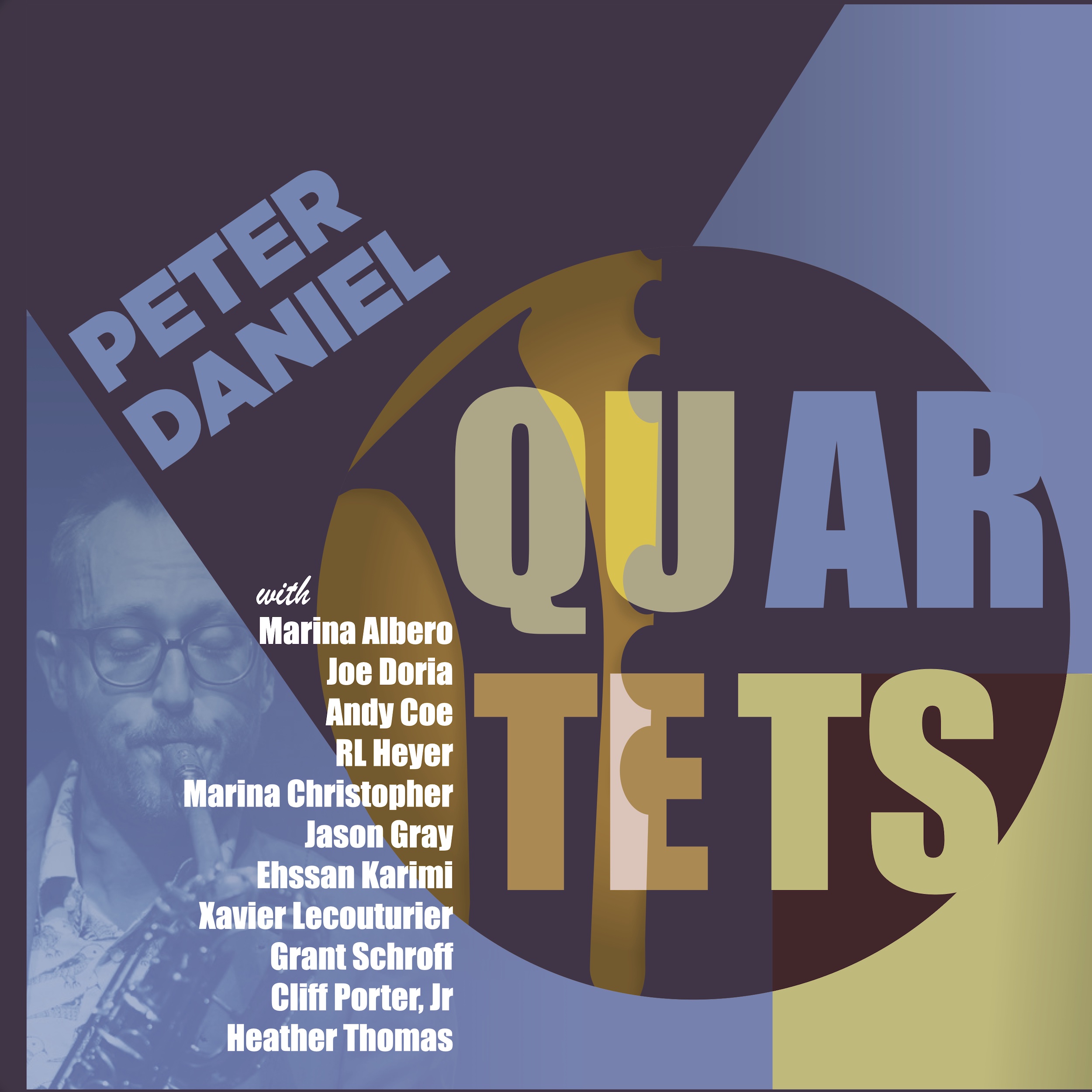Seattle-based saxophonist Peter Daniel’s debut album Quartets is more than just a musical collection, it’s a living, breathing celebration of friendship, rhythm, and soulful storytelling. It’s the kind of album that feels like a late-night jam session with old friends, where every note played carries the weight of shared history and mutual respect. Released under Music Factory Records, Quartets is an ambitious yet inviting ten-track journey that captures the energy of live performance, the intimacy of small ensembles, and the vibrant heartbeat of the Pacific Northwest’s jazz-funk scene.
Let’s be clear, Peter Daniel didn’t just drop a debut; he made a statement. Known for lending his saxophone magic to acts like The True Loves, The Polyrhythmics, and even touring with legends like Lauryn Hill and ODESZA, Daniel finally steps into the spotlight. And he shines. The album, as the name suggests, is structured around various quartets, each track featuring a different rhythm section, a fresh dynamic, and a new flavor of groove.
One of the standout moments comes early with Take A Little Chance—a track that sparkles with optimism. The rhythm is infectious, driven by tight drumming and a buttery bassline, but it’s Daniel’s soaring sax that steals the show. There’s something quietly triumphant in this tune, as if it’s encouraging you to exhale deeply and step into the unknown with a grin on your face.
And then there’s Desperate Waltz, which lives up to its name with haunting elegance. This one tugs at your heartstrings, slower, moodier, like the soundtrack to a midnight walk under city lights. The saxophone weeps gently, trading places with soft piano chords that feel like whispered confessions. It’s introspective, but never dreary. Instead, it’s deeply human.
If Quartets had a cinematic centerpiece, it would be Come Back Together and its echoing sibling Come Back Together (Reprise). The first version grooves with a sense of forward momentum—tight, funky, with layered textures that suggest a gathering storm. And just when you think you’ve felt its full impact, the reprise hits with a ghostly softness, stripping the energy down to something more contemplative and intimate. It’s a masterstroke in album storytelling—one tune looking out at the world, the other looking inward.
Daniel also flexes his melodic muscles on Pedro Azul, a track that feels like the sonic equivalent of a watercolor painting. There’s a Latin tinge here, subtle percussion, dreamy phrasing, that transports you to sunlit afternoons and long, lazy shadows. It’s sensual without being flashy, sophisticated without losing its warmth.
And then we have Cliff’s Notes vol 3, possibly the most rhythmically playful of the bunch. The drums bounce, the bass walks with swagger, and Daniel dances around them with improvisational flair. It’s a reminder that jazz doesn’t have to be serious to be smart, it can be downright fun.
What makes Quartets so special isn’t just the quality of its musicianship, it’s the community it reflects. Each track is a snapshot of a different group of long-time collaborators, and that history comes through. You can feel the trust in every syncopated groove, in the space each musician gives the others to breathe, to stretch, to explore.
Peter Daniel isn’t trying to reinvent the wheel with Quartets. Instead, he’s reminding us why we loved the wheel in the first place: the joy of movement, the beauty of spin, the thrill of momentum. His saxophone doesn’t scream for attention, it invites you to listen. And once you’re in, you won’t want to leave.
This album is a gift to jazz lovers, funk heads, and anyone who believes that music is meant to connect people. With Quartets, Peter Daniel has crafted a debut that’s not only deeply skilled but deeply felt. It grooves, it whispers, it roars and it stays with you long after the final note fades.

